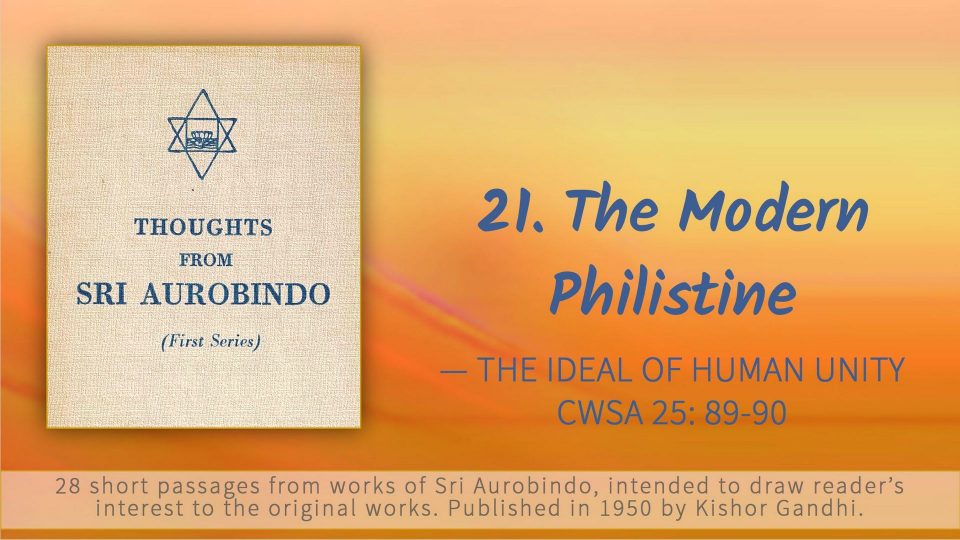
The Philistine is not dead, — quite the contrary, he abounds, — but he no longer reigns. The sons of Culture have not exactly conquered, but they have got rid of the old Goliath and replaced him by a new giant. This is the sensational man who has got awakened to the necessity at least of some intelligent use of the higher faculties and is trying to be mentally active. He has been whipped and censured and educated into that activity and he lives besides in a maelstrom of new information, new intellectual fashions, new ideas and new movements to which he can no longer be obstinately impervious. He is open to new ideas, he can catch at them and hurl them about in a rather confused fashion; he can understand, or misunderstand ideals, organise to get them carried out and even, it would appear, fight and die for them. He knows he has to think about ethical problems, social problems, problems of science and religion, to welcome new political developments, to look with as understanding an eye as he can attain to at all the new movements of thought and inquiry and action that chase each other across the modern field or clash upon it. He is a reader of poetry as well as a devourer of fiction and periodical literature, — you will find in him perhaps a student of Tagore or an admirer of Whitman; he has perhaps no very clear ideas about beauty and aesthetics, but he has heard that Art is a not altogether unimportant part of life. The shadow of this new colossus is everywhere. He is the great reading public; the newspapers and weekly and monthly reviews are his; fiction and poetry and art are his mental caterers, the theatre and the cinema and the radio exist for him: Science hastens to bring her knowledge and discoveries to his doors and equip his life with endless machinery, politics are shaped in his image. It is he who opposed and then brought about the enfranchisement of women, who has been evolving syndicalism, anarchism, the war of classes, the uprising of labour, waging what we are told are wars of ideas, or of culture, — a ferocious type of conflict made in the very image of this new barbarism, — or bringing about in a few days Russian revolutions which the century-long efforts and sufferings of the intelligentsia failed to achieve. It is his coming which has been the precipitative agent for the reshaping of the modern world. If a Lenin, a Mussolini, a Hitler have achieved their rapid and almost stupefying success, it was because this driving force, this quick responsive acting mass was there to carry them to victory — a force lacking to their less fortunate predecessors.
— The Human Cycle
The Human Cycle, The Ideal of Human Unity CWSA 25: 89-90



About Savitri | B1C1-10 The Response of Earth (p.5)